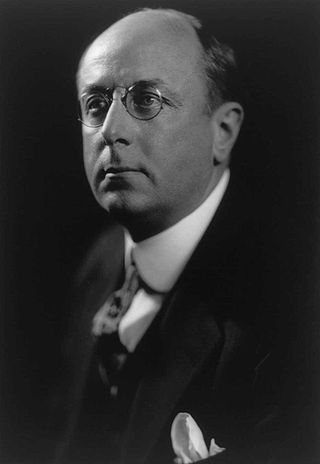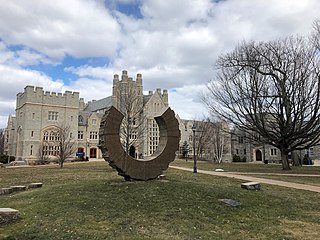Related Research Articles

William Francis Murphy was an American politician, lawyer, and jurist from Michigan. He was a Democrat who was named to the Supreme Court of the United States in 1940 after a political career that included serving as United States Attorney General, 35th Governor of Michigan, and Mayor of Detroit. He also served as the last Governor-General of the Philippines and the first High Commissioner to the Philippines.

Homer Stille Cummings was an American lawyer and politician who was the United States Attorney General from 1933 to 1939. He also was elected mayor of Stamford, Connecticut, three times before founding the legal firm of Cummings & Lockwood in 1909. He later served as chairman of Democratic National Committee between 1919 and 1920.
Sir Harry Talbot Gibbs, was Chief Justice of the High Court of Australia from 1981 to 1987 after serving as a member of the High Court between 1970 and 1981. He was known as one of Australia's leading federalist judges although he presided over the High Court when decisions such as Koowarta v Bjelke-Petersen in 1982 and Commonwealth v Tasmania expanded the powers of the Commonwealth at the expense of the states. Gibbs dissented from the majority verdict in both cases. On 3 August 2012, the Supreme Court of Queensland Library opened the Sir Harry Gibbs Legal Heritage Centre. It is the only legal heritage museum of its kind in Queensland and features a permanent exhibition dedicated to the life and legacy of Sir Harry Gibbs.

The University of Connecticut School of Law is the law school associated with the University of Connecticut and located in Hartford, Connecticut. It is the only public law school in Connecticut and one of only four in New England. In 2020 it enrolled 488 JD students.

The Connecticut Supreme Court, formerly known as the Connecticut Supreme Court of Errors, is the highest court in the U.S. state of Connecticut. It consists of a Chief Justice and six Associate Justices. The seven justices sit in Hartford, across the street from the Connecticut State Capitol. The court generally holds eight sessions of two to three weeks per year, with one session each September through November and January through May. Justices are appointed by the governor and then approved by the Connecticut General Assembly.

Paul Drew Clement is an American lawyer who served as U.S. Solicitor General from 2004 to 2008 and is known for his advocacy before the U.S. Supreme Court. He established his own law firm, Clement & Murphy, in 2022 after leaving Kirkland & Ellis, following that firm’s decision to end its Second Amendment work. He is also a Distinguished Lecturer in Law at Georgetown University and an adjunct professor at New York University School of Law. He was nominated by President George W. Bush on March 14, 2005, for the post of Solicitor General, confirmed by the United States Senate on June 8, 2005, and took the oath of office on June 13.

Susan Bysiewicz is an American politician and attorney who is the 109th lieutenant governor of Connecticut, serving since January 9, 2019. She previously served as the 72nd secretary of the state of Connecticut from 1999 to 2011. She was briefly a candidate for governor of Connecticut in 2010, before dropping out to run for Connecticut Attorney General. She was disqualified from running for the office by the Connecticut Supreme Court and announced in 2011 that she was running for the United States Senate in the 2012 election to replace the retiring Joe Lieberman. She lost the Democratic primary to U.S. Representative Chris Murphy, who went on to win the general election.

The demographics of the Supreme Court of the United States encompass the gender, ethnicity, and religious, geographic, and economic backgrounds of the 116 people who have been appointed and confirmed as justices to the Supreme Court. Some of these characteristics have been raised as an issue since the court was established in 1789. For its first 180 years, justices were almost always white male Protestants of Anglo or Northwestern European descent.

Joette Katz is an American attorney who is a partner at the law firm, Shipman & Goodwin LLP. She was an associate justice of the Connecticut Supreme Court, where she also served as the administrative judge for the state appellate system, and as Commissioner of the Connecticut Department of Children and Families. In various roles during her career she has had an impact on issues of state and national importance, such as: criminal law, capital punishment, civil rights and the right to education, eminent domain, same-sex marriage, LGBTQ rights, sexual assault, sex trafficking, and helping children in state care move from institutions to families.

Andrew J. McDonald is an American judge and former politician from Connecticut. He serves as an associate justice of the Connecticut Supreme Court.

James Coughlin Shannon was an American politician and the 77th Governor of Connecticut.
James Leo Ryan is an inactive senior United States circuit judge of the United States Court of Appeals for the Sixth Circuit.

Oliver Ellsworth was a Founding Father of the United States, attorney, jurist, politician, and diplomat. Ellsworth was a framer of the United States Constitution, United States senator from Connecticut, and the third chief justice of the United States. Additionally, he received 11 electoral votes in the 1796 presidential election.
Ernest Alexander Inglis was a lawyer, judge, and chief justice of the Connecticut Supreme Court.
Dennis Gene Eveleigh is an American lawyer and former justice of the Connecticut Supreme Court.
John Munson Comley was a justice of the Connecticut Supreme Court from 1963 to 1965.
John Wallace Banks was a justice of the Connecticut Supreme Court from June 30, 1927 to September 22, 1937.
Joseph S. Longo was a justice of the Connecticut Supreme Court from 1975 to 1979.
Louis Shapiro was a justice of the Connecticut Supreme Court from 1970 to 1975.

Richard A. Robinson is an American lawyer and judge, who has served as chief justice of the Connecticut Supreme Court since 2018, and previously as an associate justice from 2013 to 2018.
References
- ↑ "James E. Murphy". The New York Times . May 23, 1986. p. B4.
- ↑ "Thim, Ryan Sworn In As Court Justices", The Bridgeport Post (July 21, 1966), p. 59.